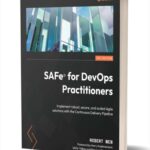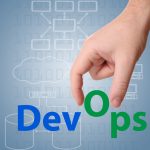Only 10 percent of companies have full observability into cloud environments
A new study shows that in 2024, the biggest challenge to gaining observability into cloud-native environments -- cited by 48 percent of respondents -- is lack of knowledge among the team. This is up from 30 percent in 2023.
The report from Logz.io shows only 10 percent of organizations are utilizing full observability, that is, observing the real-time status of every component of the entire technology stack.
Logs, metrics and traces -- unlocking observability [Q&A]

Ensuring observability has always involved three pillars: logs, metrics and traces. However, the reality is that most organizations simply store this information in silos which are incapable of communicating with one another.
Jeremy Burton, CEO of Observe, believes organizations need to go beyond the three pillars of past failed solutions and instead view observability as purely a data problem. We talked to him to learn more.
Guide for CTOs: How to elevate your DevOps journey

For Chief Technology Officers, spearheading a culture of innovation and forging a resilient DevOps infrastructure are paramount. These objectives, however, unfold over time through a deliberate journey of strategy, experimentation, and reflection. Establishing and nurturing DevOps processes is a pivotal part of this journey, requiring a comprehensive framework to ensure your team remains aligned with organizational goals.
The DevOps Maturity Model serves as a vital framework, guiding engineers and CTOs to precisely evaluate their position within the DevOps adoption continuum and critically review their ongoing initiatives. This roadmap is essential for improving performance, fostering a culture of continuous innovation, and ultimately achieving the desired outcomes.
Get 'Linux DevOps Handbook' (worth $39.99) for FREE

The Linux DevOps Handbook is a comprehensive resource that caters to both novice and experienced professionals, ensuring a strong foundation in Linux.
This book will help you understand how Linux serves as a cornerstone of DevOps, offering the flexibility, stability, and scalability essential for modern software development and operations. You’ll begin by covering Linux distributions, intermediate Linux concepts, and shell scripting to get to grips with automating tasks and streamlining workflows.
Managing the transition from DevOps to Platform Engineering

DevOps has historically been the dominant force in software development, explained by Pearl Zhu as being “for harnessing integration, interaction, and innovation.” With the increasing pressure on companies to keep pace in a rapidly evolving technological space, these capabilities are essential.
But this is changing. The standardization of DevOps into Platform Engineering demonstrates the efforts many organizations are going to make developers' lives easier and more productive. While not a new field, this transition represents an evolution in how we design, build, and deliver software.
Enterprises hang onto mainframes as migration strategies shift

A new report suggests that faced with mounting competition and economic uncertainty, 92 percent of global enterprises are changing course to retain mainframes as part of pragmatic hybrid strategies, rather than pursuing wholesale cloud shifts.
The latest Mainframe Modernization Business Barometer Report from Advanced, based on a survey of 400 IT leaders worldwide, reveals hybrid infrastructure strategies taking hold to balance workloads across cloud and mainframe. In fact, only six percent expect outright mainframe replacement anytime soon.
Balancing risk and reward with low-code and no-code platforms [Q&A]

In recent years, enterprises have increasingly turned to low-code and no-code platforms in order to streamline their development processes.
With the introduction of AI, this sector is evolving even faster and Wing To, general manager of Intelligent DevOps at Digital.ai, believes this needs organizations to develop a cautious approach. We spoke to him to find out why.
Kubernetes monitoring: 5 essential strategies for DevOps success

Monitoring Kubernetes clusters is a critical aspect of managing cloud-native applications. Kubernetes, a favored tool among giants like Spotify and Major League Baseball, empowers developers to create and operate at scale. However, the complexity of Kubernetes with its multitude of nodes and containers demands a robust monitoring strategy.
In this article, we share five key practices to enhance your Kubernetes monitoring approach. Let's dive in...
CI and CD -- what they are and why they're not the same [Q&A]

You'll often hear CI (continuous integration) and CD (continuous deployment) mentioned in the same breath, often as CI/CD, and indeed both are part of improving the quality, speed and efficiency of software development.
However, Stephen Atwell, principal product manager at Armory, argues that they shouldn't be considered as related functions. We spoke to him to find out why.
96 percent of organizations vulnerable due to mismanaged secrets

A new study from Akeyless Security finds that modern DevOps and multi-cloud environments are susceptible to secrets-related breaches and that over 70 percent of organizations have had credentials, certificates and keys breached in the last two years.
Based on responses from over 200 professionals with security responsibility in organizations with over 1,000 employees, the report finds one in three security professionals have ranked secrets management among their top five priorities.
Get 'SAFe for DevOps Practitioners' (worth $37.99) for FREE

Product development and release faces overlapping challenges due to the combined pressure of delivering high-quality products in shorter time-to-market cycles, along with maintaining proper operation and ensuring security in a complex high-tech environment.
This calls for new ways of overcoming these challenges from design to development, to release, and beyond. SAFe for DevOps Practitioners helps you use a DevOps approach with the Scaled Agile Framework and details how value streams help you resolve these challenges using examples and use cases.
New service aims to make cloud more accessible

With so many different platforms and technologies available, navigating the world of cloud computing can be tricky.
In a bid to make things simpler Acorn Labs is announcing public beta availability of its cloud developer platform Acorn, a service that makes it simple for anyone to run software in their own cloud sandbox and easily share their creations.
DevOps, diversity, and the lens of intersectionality

One of the core principles of DevOps is to build a supportive culture, one based on collaboration and empathy. This is often overlooked in the rush to build, deploy and continuously run applications.
Empathic, collaborative environments equip DevOps teams to better understand the unique challenges they face as individuals, enhancing their ability to resolve issues together in a way that promotes a culture of blamelessness. This can help pave the route to a greater sense of psychological safety (the belief that you’re safe to take interpersonal risks, such as sharing ideas or soliciting feedback).
Enterprises lack strategy for DevOps automation

Investments in DevOps automation are delivering significant benefits, including a 61 percent improvement in software quality, a 57 percent reduction in deployment failures, and a 55 percent decrease in IT costs.
However, a new survey from Dynatrace shows that just 38 percent of organizations have a clearly defined DevOps automation strategy.
Aligning DevOps and change management

Companies are committing to DevOps; in fact, according to a recent survey, three-quarters of leaders have adopted DevOps into their operations. DevOps delivers speed and agility to the development process. By cross-training operations and engineering, development teams can move faster through better collaboration, making continuous integration and continuous delivery (CI/CD) a reality for organizations.
The challenge some companies face, however, is change management, the process used to control any change related to a product in production. The process is there to ensure things don’t move too fast, and that production isn’t rushed. Companies that can align DevOps with their change management process see the greatest gains in getting products to market.
Recent Headlines
Most Commented Stories
BetaNews, your source for breaking tech news, reviews, and in-depth reporting since 1998.
© 1998-2025 BetaNews, Inc. All Rights Reserved. About Us - Privacy Policy - Cookie Policy - Sitemap.